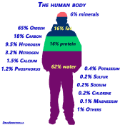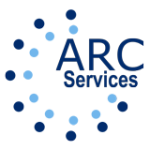Drug Overdose Signs
A drug overdose occurs when a person consumes too much of a drug, leading to harmful or deadly consequences. It can be accidental or intentional, but the result is the same. Following drug dosage guidelines on medication and seeking help for substance abuse is the best prevention.
Some common signs of overdose include
- difficulty breathing,
- severe drowsiness,
- vomiting,
- confusion,
- constricted pupils and
- loss of consciousness.
It is important to seek immediate medical attention if you suspect someone has a drug overdose.
What to Do in Case of an Overdose
The first step is to stimulate the person to see if they respond. You can do this action by talking to them, shouting at them calling out their name or gently shaking their body. If they are unresponsive to the action, you can see if they respond to pain by pinching them. If there is no response from the person there is a medical emergency, call 911.
Answer the 911 call taker, the person will ask the following question:
- Your location (they will ask for specifics like the cross street, the town, etc
- Your phone number in case you get disconnected
- Why you are calling

Stages of
Addiction
How to
Quit Crack

Breathing and Airways
The 911 call taker will be able to guide you through the procedure. Verify that the person’s airway is not obstructed. The person may have a candy, gum, or a syringe cap in their mouth.
When all obstacles are removed give mouth to mouth assistance by tilting the head back. You will need to help the person breath. Ventilation reduces the risk of irreversible brain damage.

Alcohol
Overdose
Understanding
Cravings

What is Naloxone?
One commonly overdosed drug is opioids, like prescription painkillers and illicit substances like heroin.
In the event of an opioid overdose, Naloxone can be used as an emergency treatment to reverse the effects of the overdose. Naloxone binds to opioid receptors in the brain, blocking and reversing the harmful respiratory depression that can occur with opioid use.
Naloxone is available in various forms, including injectable solutions and nasal sprays. In most cases, pharmacies across Canada offer a free sample. If you use these drugs or know someone who does, it is recommended that you check the availability in your region and obtain a dosage.
Who can administer naloxone?
The persons administering naloxone should have the training necessary to recognize the signs of an opioid overdose. They should also know what steps to take. Someone with training in CPR is recommended. Read more about it here.
Opioid Overdose
Unfortunately, drug overdoses have become increasingly common in recent years, particularly with opioids. An opioid overdose can lead to slowed or stopped breathing, resulting in brain damage or death. Naloxone should be administered quickly to reverse the effects and prevent potentially fatal consequences.
If you or someone you know is struggling with drug misuse or addiction, help is available. Please get in touch with a healthcare professional. Do not hesitate to seek help – it could save a life.
Preventing Drug Overdose
Remember, an overdose is preventable. Stay safe and educated about the risks of drug use.
“Know your limits” or “Seek help for substance abuse.”
- Prevention starts with you
- Don’t let drug misuse lead to overdose
- Get help before it’s too late
- Know the risks and take steps to protect yourself
- It’s never too late to seek treatment for drug addiction

Alcohol and
Depression
Drug Induced Psychosis

Canadian statistics on drug overdoses
The COVID-19 pandemic has had a significant impact on Canada’s opioid crisis. In the first two years of the pandemic, there was a 91% increase in apparent opioid toxicity deaths, with a total of 15,134 deaths from April 2020 to March 2022 compared to 7,906 in the two years prior.
The increase in overdose deaths during the pandemic came from various factors, including reduced support programs and increased social isolation and stress. The closure of borders and disruption of drug supply lines has also led to a rise in toxic substances, such as fentanyl, mixed into illicit drugs.
The Canadian government has worked to address this crisis by investing $150 million into harm reduction programs and expanding access to drugs that can reverse the effects of opioid overdose.

Addiction Series
- Alcohol and Depression
- Alcohol, Dangers in Stopping
- Alcohol Overdose
- Addiction – Beginning
- Addiction Symptoms
- Addiction Consequences
- Drug-Induced Psychosis
- Drug Overdose
- How to quit crack cocaine?
- It’s Difficult to Quit Drinking
- Overlooking Addiction & Diagnosing Depression
- Stages of Addiction
- Quitting Weed
- The Functional “Addict” Defined
- Understanding Cravings
- What is Addiction?
- Alcohol and Depression
- Alcohol, Dangers in Stopping
- Alcohol Overdose
- Addiction – Beginning
- Addiction Symptoms
- Addiction Consequences
- Drug-Induced Psychosis
- Drug Overdose
- How to quit crack cocaine?
- It’s Difficult to Quit Drinking
- Overlooking Addiction & Diagnosing Depression
- Stages of Addiction
- Quitting Weed
- The Functional “Addict” Defined
- Understanding Cravings
- What is Addiction?
Find out more about us.

Carole Pelland
Substance Abuse
Digital Marketing Administrator
& Author





